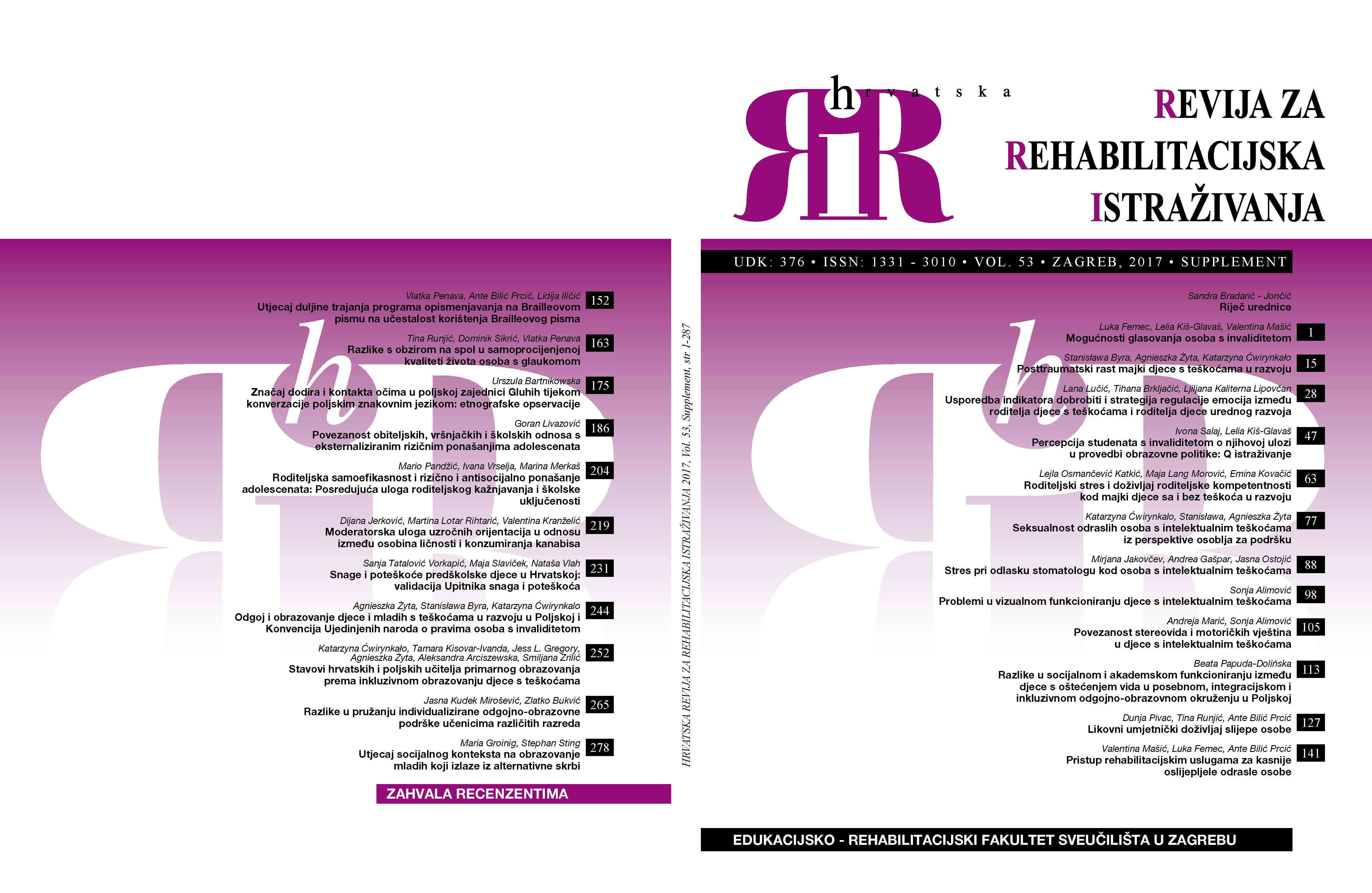Mogućnost glasovanja osoba s invaliditetom
Voting opportunities for persons with disabilities
Author(s): Luka Femec, Lelia Kiš-Glavaš, Valentina MašićSubject(s): Social Sciences
Published by: Sveučilište u Zagrebu, Edukacijsko-rehabilitacijski fakultet
Keywords: right to vote; voting opportunities; politics; persons with disabilities;
Summary/Abstract: The aim of this article is to analyse the political rights of persons with disabilities and gain an insight into their interest in politics, especially their ambition to be actively involved in political life and to make political decisions, which are important for their specific issues. The Republic of Croatia signed and ratified numerous documents such as the Convention on the Rights for Persons with Disability, which promotes social and political activities, as well as equal and undisputed use of voting rights for every person. According to the Croatian Institute for Public Health, more than one tenth of the Croatian population has a disability, so they could significantly influence the election results. Thus there is a need to investigate voting opportunities for persons with disabilities. This study involved 145 participants with intellectual, physical or visual disability from different cities in Croatia. The research team created a questionnaire containing eight questions with the goal of examining the awareness of persons with disabilities of various difficulties. The questions asked about age, gender, place of residence, knowledge of voting rights, social activities, and adaptation options at polling stations. The data were analysed by quantitative data processing, the χ2 test and the method of correlation. The results indicate the need for more customised information on voting rights for persons with disabilities. There is also a need to adjust and improve voting opportunities for all persons with disabilities regardless of type of impairment, age, gender, or place of residence. Compared with participants with physical or intellectual disabilities, those with visual impairment were more often unable to vote independently and secretly because of inadequate balloting.
Journal: Hrvatska revija za rehabilitacijska istraživanja
- Issue Year: 53/2017
- Issue No: Supp.
- Page Range: 1-14
- Page Count: 14
- Language: English

